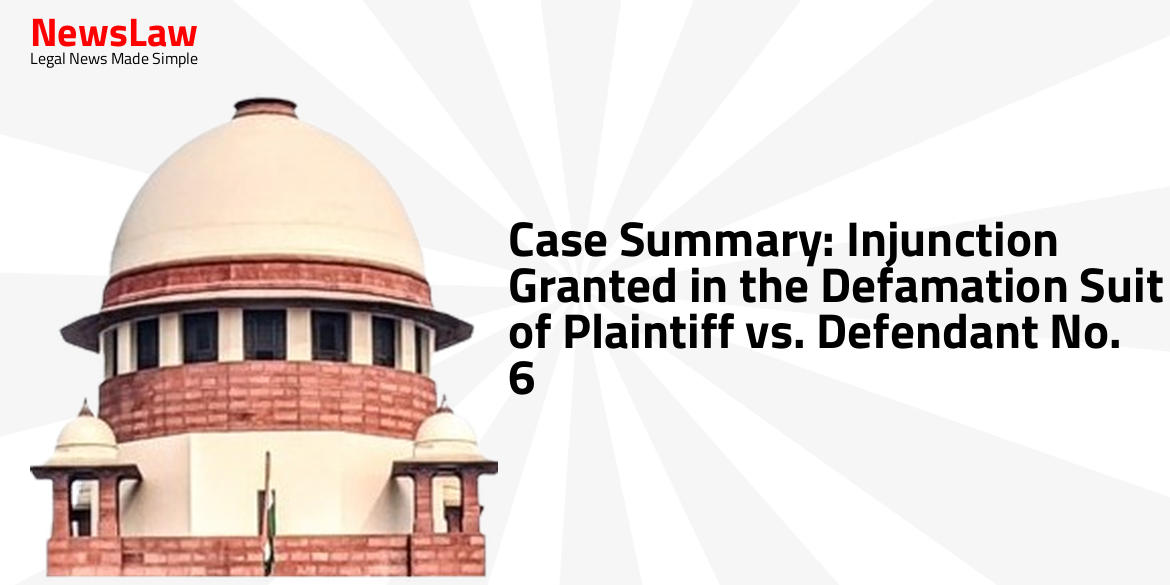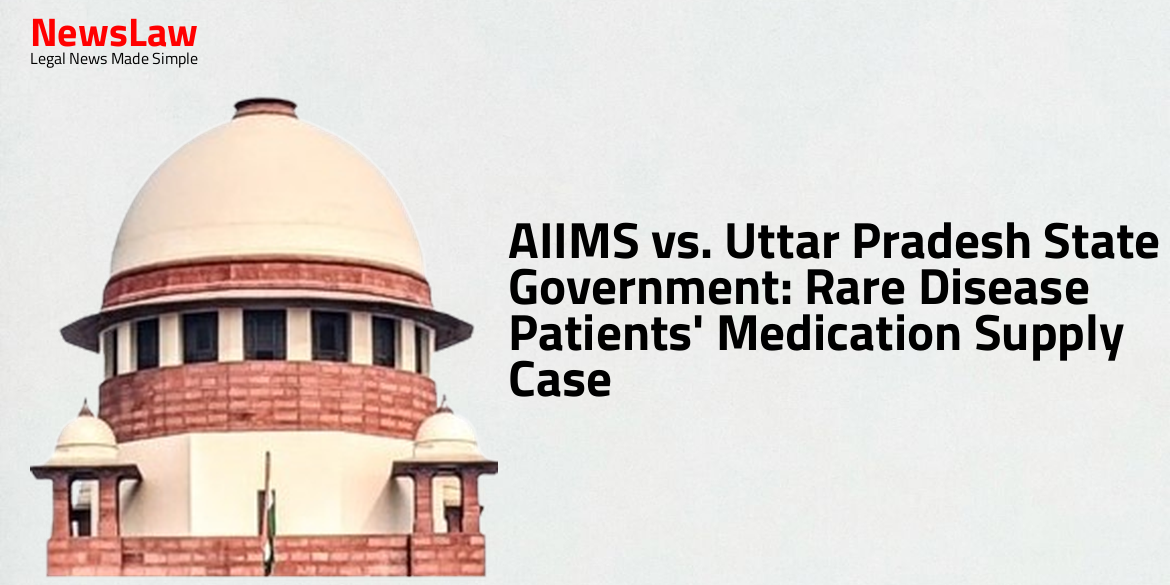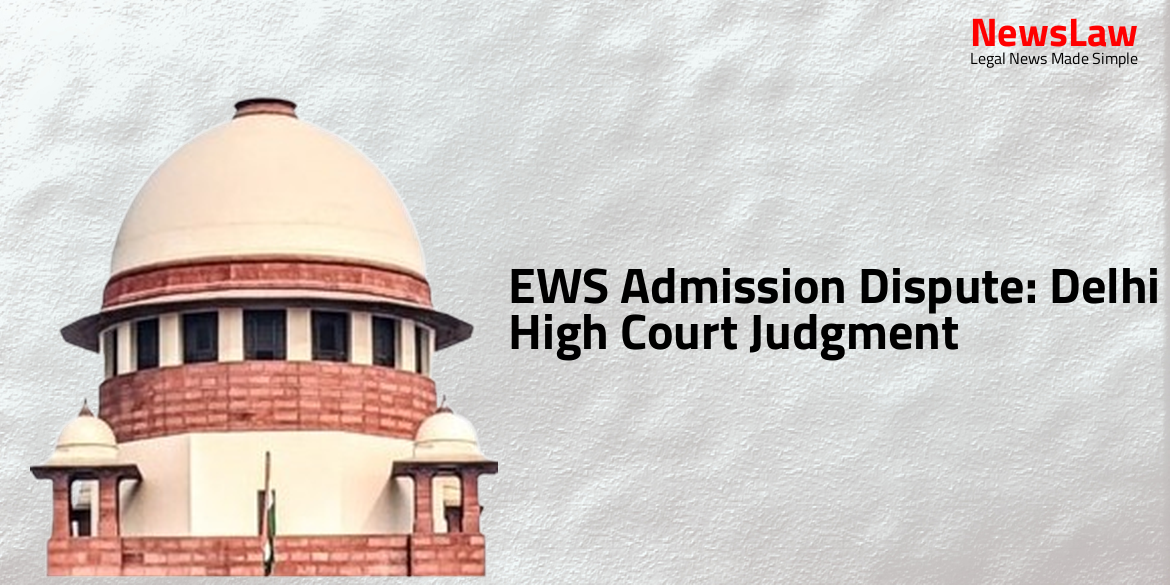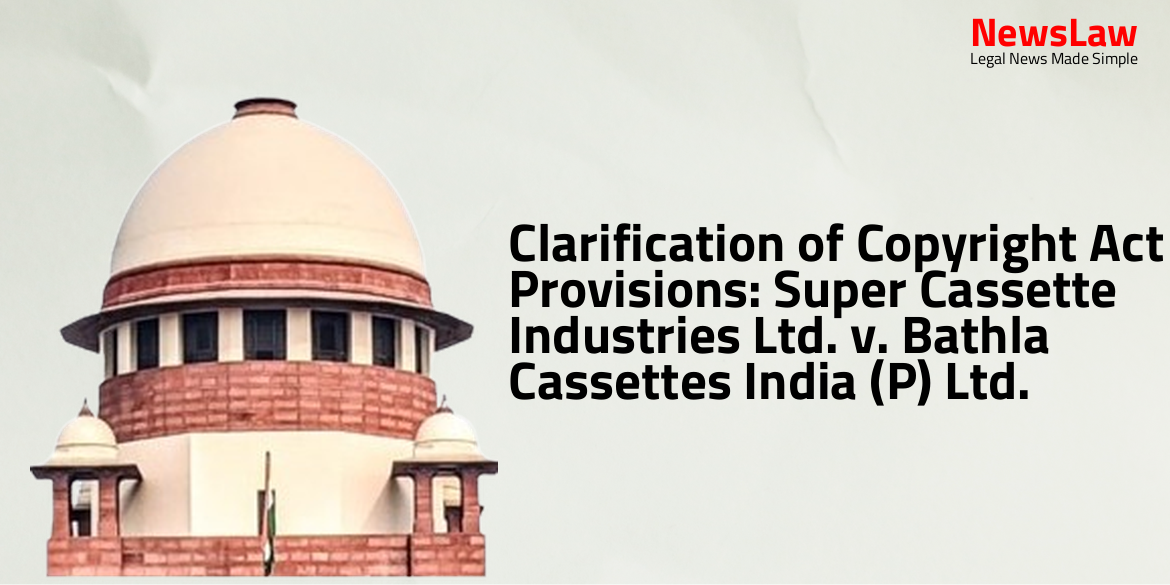Delhi High Court’s recent judgment in the defamation suit of the plaintiff against Defendant No. 6 showcases the crucial balance between freedom of speech and protection of reputation. The court’s decision highlights the significance of upholding individual dignity in the digital era. Stay informed about this landmark case shaping legal boundaries on social media platforms.
Facts
- The defendant No 4 orchestrated and drove the actions of defendant No 6 to malign the reputation and career of the plaintiff.
- The plaintiff did not use any abusive language against defendant No 6 during the live debate on India TV News Channel.
- The original footage of the debate on 04.06.2024 proves that no abusive language was used by the plaintiff.
- The allegations made by defendant Nos. 4 to 6 are false and have reached a large audience, damaging the plaintiff’s reputation.
- On 10.06.2024, defendant No 6 falsely accused the plaintiff of using abusive language on a social media platform.
- The false accusations were liked and re-tweeted, causing irreversible damage to the plaintiff’s reputation built over four decades in journalism.
Arguments
- The plaintiff has sought injunction for deletion of the Tweets from all social media platforms.
- The plaintiff asserts that the defamatory posts by the defendant No 6 have harmed his reputation among family, friends, peers, followers, and society.
- The plaintiff claims that the allegations made by defendant No 6 are false and maliciously intended to harm his reputation earned over four decades.
- The plaintiff argues that he has a strong prima facie case and irreparable damage would occur if the defamatory posts and videos are not removed from the internet.
- The balance of convenience favours the plaintiff as no loss would be incurred if the defamatory posts and videos remain blocked from the platforms.
- The plaintiff’s counsel contends that the allegations against the plaintiff cannot be proven at all and are baseless.
- The defendant No 6 falsely accused the plaintiff of using abusive language and threatening legal action, which is refuted by evidence presented in court.
- Directions requested for removal of specific links by the ARG_RESPONDENT.
- Prayer made for an ad interim ex parte injunction against all the defendants.
Analysis
- Dignity is a crucial aspect of individual rights that are fundamental for society’s harmony and interest.
- Defendant Nos. 4 to 6 posted edited videos on social media platforms, suggesting it was ‘Raw Footage’ of a debate, potentially defaming the plaintiff.
- While freedom of speech is essential for democracy, individual dignity cannot be sacrificed for it.
- The videos posted by Defendant No. 6 twisted facts and made false allegations to damage the plaintiff’s reputation.
- Legal precedents emphasize the significance of reputations and the impact of defamatory statements.
- In cases of libel and slander, interim injunctions can be granted if the statement is clearly defamatory with no valid defense.
- Considerations for granting an ex parte injunction include irreparable harm to the plaintiff, timing of notice of the act, good faith of the plaintiff, and limited time for the injunction.
- The plaintiff, a senior journalist, was merely fulfilling professional duties during the debate on election issues.
- The judiciary recognizes dignity as a fundamental right under Article 21, essential for personal integrity and reputation.
- Imminent threat of misuse of videos depicting the plaintiff is a reason for restraining them from the public domain until the Suit is decided.
- Statements made by defendant Nos. 4 to 6 alleging plaintiff used abusive language lacked truth as evidenced by a video of the TV debate.
- Courts face a challenge in balancing freedom of speech and reputation protection.
- X Posts harming plaintiff’s reputation were deemed false and sensationalized.
- Citizens have the right to freedom of speech but also a duty to remain truthful.
- Video footage presented in Court showed plaintiff’s minimal intervention without using abusive language.
- Granting the injunction as sought by the applicant/plaintiff is necessary to prevent irreparable loss and inconvenience.
- The balance of convenience favors the plaintiff as making the videos private or injuncting them does not infringe on the defendants’ freedom of speech.
- Continuing to have the videos and Tweets in the public domain can cause irreparable harm to the plaintiff’s reputation.
- There is potential for future harm and disrepute to the plaintiff with practically no reparation if the material remains in public.
- Restraining the material from public domain until the suit is decided will not harm the defendants.
Decision
- X Posts/Tweets (URLs annexed as ‘Annexure-1’) must be removed within seven days
- Videos in the public domain must be made private and not put back in the public domain without court orders
Case Title: RAJAT SHARMA Vs. X CORP & ORS. (2024:DHC:4757)
Case Number: I.A.-31740/2024



